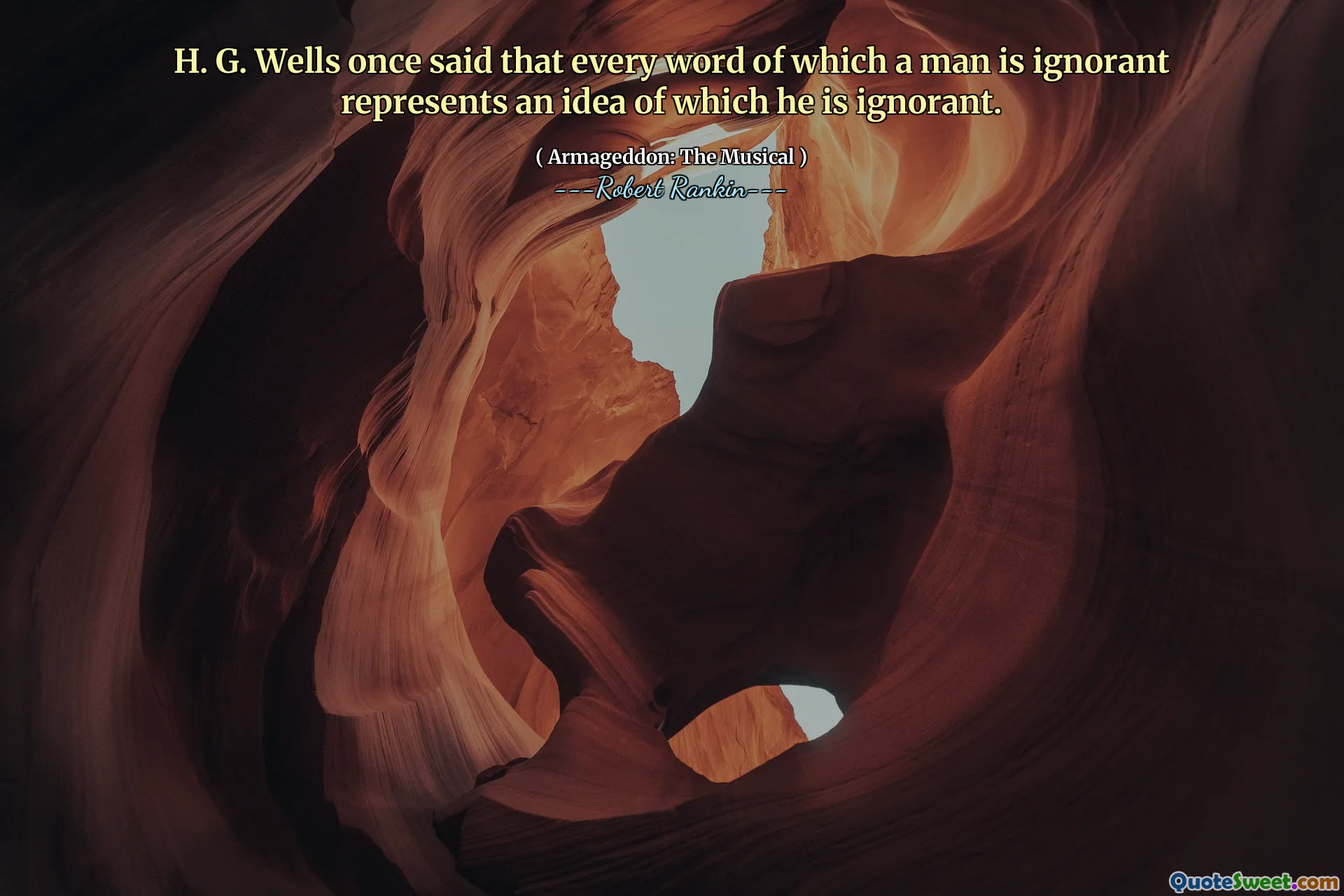
H. G. Wells once said that every word of which a man is ignorant represents an idea of which he is ignorant.
In "Armageddon: The Musical," Robert Rankin explores the concept that our understanding of the world is limited by our vocabulary. The quote by H.G. Wells highlights how each unfamiliar word signifies a missing idea or concept, reflecting the intricate relationship between language and knowledge. The more words we know, the more ideas we can grasp, shaping our perceptions and beliefs. This notion underscores the importance of expanding our vocabulary as a means of broadening our understanding of life and the universe.
Rankin's work invites readers to engage with this idea by considering how ignorance can impact creativity and communication. The exploration of language within the narrative encourages an appreciation for the richness of expression and the depth of thought that comes from a well-developed lexicon. Ultimately, the story serves as both entertainment and a call to introspection about our linguistic awareness and the ideas connected to the words we encounter.






